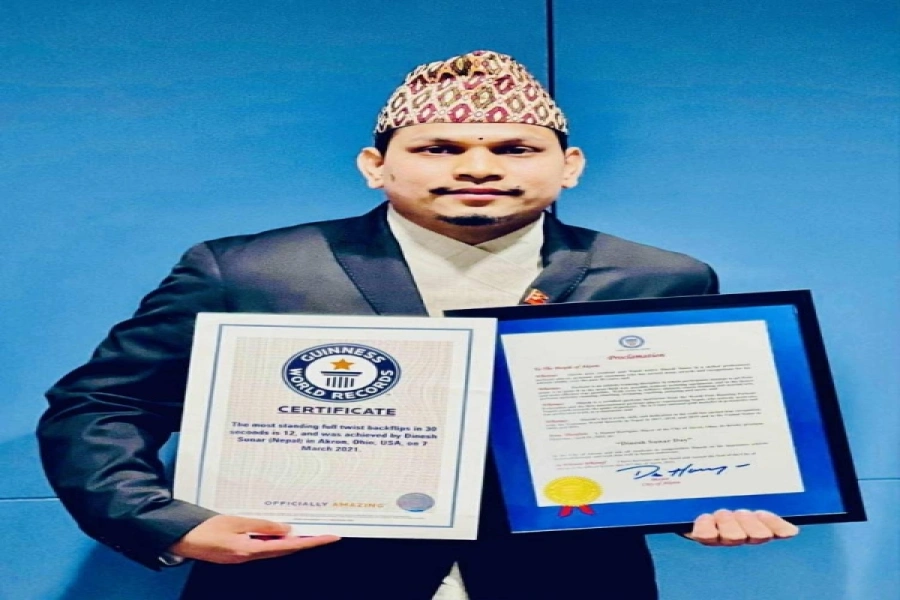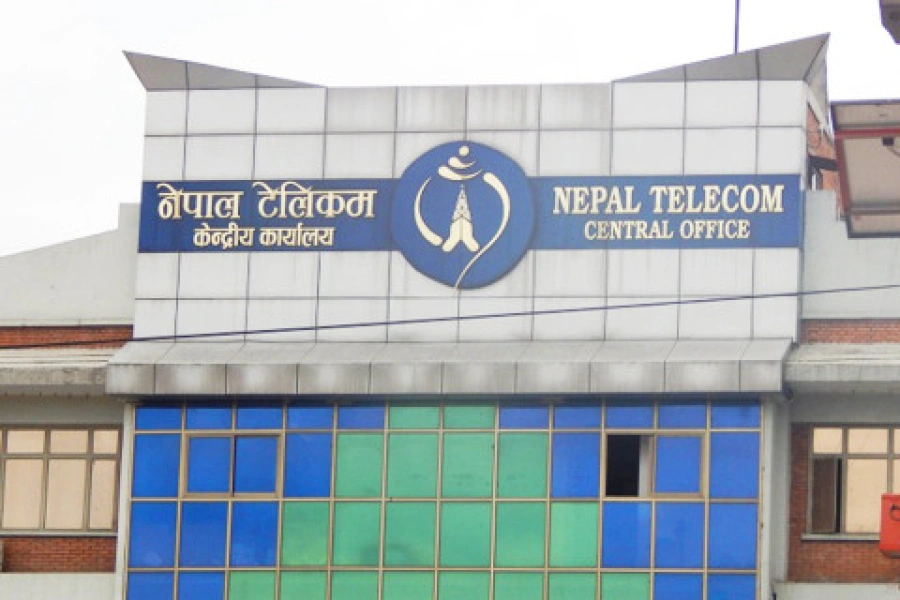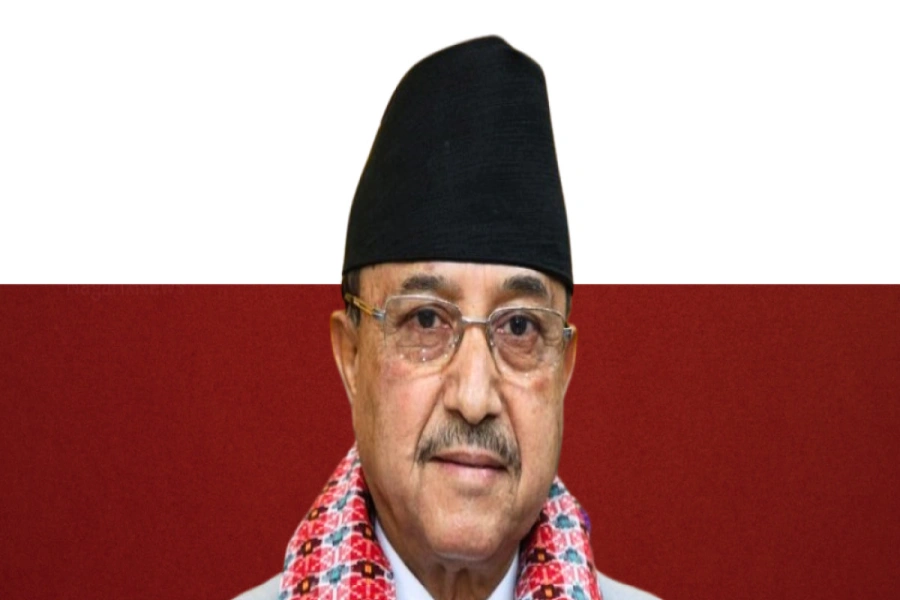“Dai Chiya (brother tea please),” the street kids stretch their small but dirty hands and start begging for a hot cup of tea. Some brush them off while a few hand them their cups. They are eager to talk to people and ask for tea, biscuits and cigarettes but if one begins to ask their names and other personal details, they disappear in no time.[break]
“These kids are very insecure that they will get into problems so they refrain from giving away personal details,” says Juju Kaji Shrestha, founder of Heartbeat, an organization that has been working for street kids since 2009.
All the street kids at Basantapur have an identity card hung around their necks that they carefully hide underneath their clothes. These identity cards are given by the organizations that provide them food.
Photo Courtesy: Bishal Bista
“We go to the organization’s office at Bhotebahal and play there for a while and they provide us with food coupons,” says Dinesh Ghimire*, a 12 year-old street kid. But Dinesh, like his other friends, does not want to stay permanently at any organization.
Shrestha points out freedom as one of the main factors that make street kids choose streets over rehabilitation. “These kids have come to the capital from different rural parts of Nepal with big dreams. Their heads are filled with making money rather than having a good life which is the reason behind many children organizations failing to counsel these kids,” he says.
Centre for Child Welfare Board (CCWB), a government body in collaboration with different NGOs and INGOs working for children issues, has tried to bring programs for the rehabilitation of street kids in the past but none of their programs took off. The board has been blaming the lack of budget for the shelving of the programs, but Ram Bahadur Chand, officer at CCWB adds that delay in appointment of executive director at the board has also pushed the programs further in limbo.
Whatever may be the cause, it is apparent that government is seriously lagging behind in effectively tackling the issue of street kids. Due to the lack of government intervention, these street kids not only lose out on having a home, education and better future but are also exposed to crimes from an early age.
DIG Keshav Adhikary, spokesperson of Nepal Police says that street kids get involved in criminal activities because of lack of awareness. “Many times, they are not able to judge the consequences of their actions since they have been devoid of any guardianship and upbringing,” he says.
According to the Police data, there are around 300 street kids in the capital who are devoid of shelter. Some 100 other street kids loiter on the streets by day and return to a temporary shelter by night. Among them, 99% of the kids exploit dendrite to get high.
Shrestha agrees with DIG Adhikary that street kids do not get a chance for a better future due to the lack of parental custody and care. “They’re more vulnerable to bad influence and I get taken aback by the attitude of the educated young people who give these kids drugs and other harmful substances which further spoils their chances of rehabilitation and integration,” he says.
Chand accepts that rehabilitation of street kids is a challenging task. “These kids are first identified and then admitted to a rehabilitation centre. Then their response to counseling has to be taken into consideration. If they respond well, then the counselors will be able to recognize their problems and shape their minds to integrate them into the society,” he says.
But many organizations working for street kids have only been providing the kids with food. “Providing food to the street kids will at least keep them from hunger but these organizations are, in a way, encouraging the street kids against rehabilitation. When there is a permanent source of food, the kids will choose to stay on the street rather than get into any organization,” says Chand.
Shrestha, on the other hand, refuses to believe that the organizations are to be blamed. “What we need is social awareness. The organizations are small groups of people who are doing as much as they can. The main point is the society’s attitude towards these kids,” he says pointing towards a group of youngsters who were offering a cigarette stick to a street kid.
It is high time that government takes the case of street kids as a serious problem and allocates required budget to address the issue. The non government organizations should update their programs than just distributing identity cards to the street kids. The general public, on the other hand, should also acknowledge street children as a serious issue and help them acquire their basic rights such as nutritious food, health care, a safe shelter and proper education.
Worth of stories



































